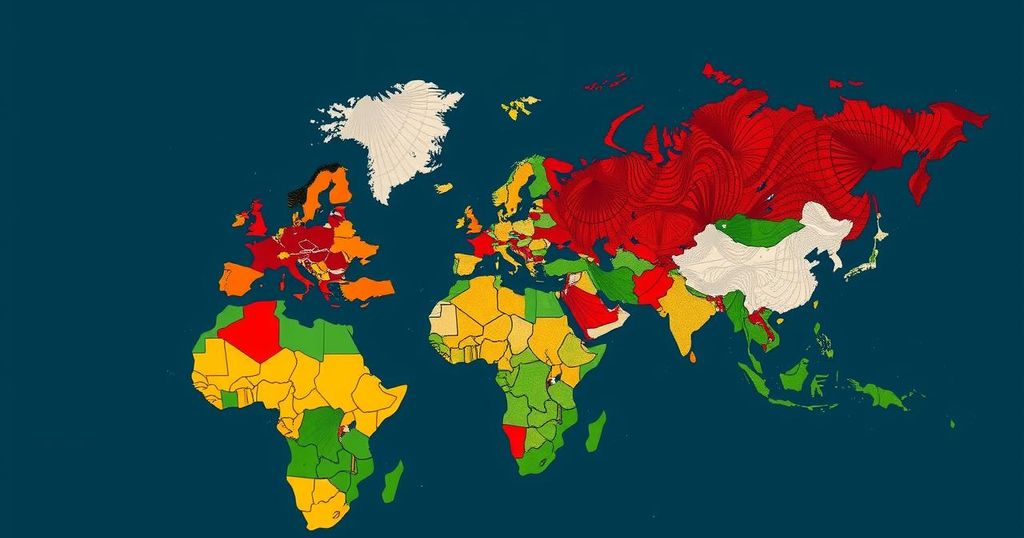COP29: Military Spending Criticized for Outpacing Climate Funding

Rich nations were criticized at COP29 for prioritizing military spending over climate change prevention. The conference highlighted the need for increased funding for developing countries to combat the climate crisis, amid alarming findings linking climate change to more intense hurricanes. Strong calls for urgent action were made by various delegates, stressing the interconnectedness of environmental and military issues.
At the COP29 conference held in Azerbaijan, rich nations faced severe criticism for prioritizing military spending over investment in climate change mitigation. Juan Carlos Monterrey Gómez, Panama’s climate envoy, stated that annual military expenditures total a staggering $2.5 trillion, while the commitment to climate aid appears woefully inadequate at $1 trillion. He remarked, “Causing our own extinction is the most ridiculous thing. At least the dinosaurs had an asteroid. What is our excuse?”
The session also highlighted the environmental devastation faced in conflict zones. Nisreen Tamimi from the Palestinian Environment Quality Authority condemned Israel’s actions in Gaza as ecocide, emphasizing that environmental protection is a fundamental human right. Ukrainian Deputy Environment Minister Svitlana Grynchuk pointed out the ecological damage in Ukraine due to military operations, asserting that “Nature knows no borders.”
During the event, UN Secretary-General António Guterres stressed the importance of the developed countries’ role in achieving COP29’s objectives, pointing out that financial needs of developing nations must be addressed through increased public funds. He urged the leaders of the world’s largest economies to enhance their climate commitments. Additionally, Brazilian President Luiz Inácio Lula da Silva called for advanced emission reduction goals, stating, “The G20 is responsible for 80 percent of greenhouse-effect emissions.”
Scientific findings presented at the same time revealed alarming increases in hurricane intensity, with storms in the Atlantic becoming approximately 18 mph stronger since 2019, attributed to climate change. Notably, this enhancement leads to more destructive Category 5 storms. Daniel Gifford, lead author of the study, reflected on the disastrous implications of these changes, stating, “We know that the intensity of these storms is causing a lot more catastrophic damage in general.” The data indicate a marked increase in storm power, resulting in potentially catastrophic impacts worldwide.
The discussions at COP29 reflect the urgent need to address the imbalance between military spending and funding for climate change initiatives. As military budgets continue to surmount significant figures, advocates argue that insufficient funding is allocated toward sustainable development and mitigation efforts that could avert catastrophic environmental consequences. The focus on military expenditures has drawn attention to the interplay between conflict and environmental degradation, influencing global climate policy and financial commitments, especially from developed nations. Understanding the consequences of climate change, including the intensification of storms, is crucial in driving reforms and establishing more equitable funding frameworks in light of the challenges posed by climate change and militarization.
The COP29 conference underscored the pressing dilemma surrounding military expenditures overshadowing investments in climate protective measures. Critiques from various delegates brought forth the stark reality that current financial commitments fail to meet developing nations’ needs, exacerbating the climate crisis. In addition, recent scientific evidence stressing increased hurricane intensity further amplifies the urgency for global action. As world leaders grapple with financing solutions, the imperative for a concerted effort to allocate resources toward climate initiatives has never been clearer.
Original Source: www.peoplesworld.org








